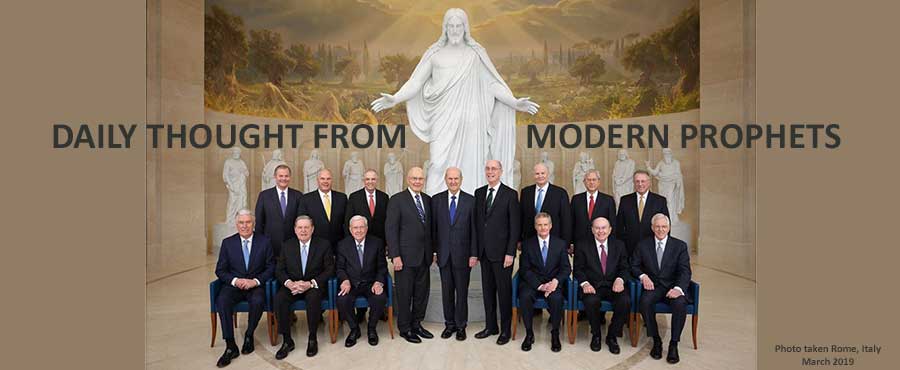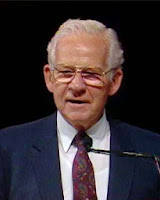"Impressions of the Spirit can come in response to urgent prayer or unsolicited when needed. Sometimes the Lord reveals truth to you when you are not actively seeking it, such as when you are in danger and do not know it. However, the Lord will not force you to learn. You must exercise your agency to authorize the Spirit to teach you. As you make this a practice in your life, you will be more perceptive to the feelings that come with spiritual guidance. Then, when that guidance comes, sometimes when you least expect it, you will recognize it more easily.
"The inspiring influence of the Holy Spirit can be overcome or masked by strong emotions, such as anger, hate, passion, fear, or pride. When such influences are present, it is like trying to savor the delicate flavor of a grape while eating a jalapeño pepper. Both flavors are present, but one completely overpowers the other. In like manner, strong emotions overcome the delicate promptings of the Holy Spirit....
"Have patience as you are perfecting your ability to be led by the Spirit. By careful practice, through the application of correct principles, and by being sensitive to the feelings that come, you will gain spiritual guidance. I bear witness that the Lord, through the Holy Ghost, can speak to your mind and heart. Sometimes the impressions are just general feelings. Sometimes the direction comes so clearly and so unmistakably that it can be written down like spiritual dictation."
- Richard G. Scott, "To Acquire Spiritual Guidance," Ensign, Nov. 2009, pp. 6-9This was a very worthwhile address from Elder Scott, instructing and encouraging on the process of acquiring more spiritual guidance in our lives.
Click here to read the full talk
The first point is our role in seeking the teaching and guidance that the Lord is eager to offer.
I like the phrase "authorize the Spirit to teach you." As we do that more regularly, the process becomes easier, and we become more sensitive to the impressions that follow.
Then this precious insight about the environment into which the Spirit will come, and the things that will prevent it from coming:
Elder Scott teaches that we are all in the process of "perfecting [our] ability to be led by the Spirit." May we do so more eagerly!

































